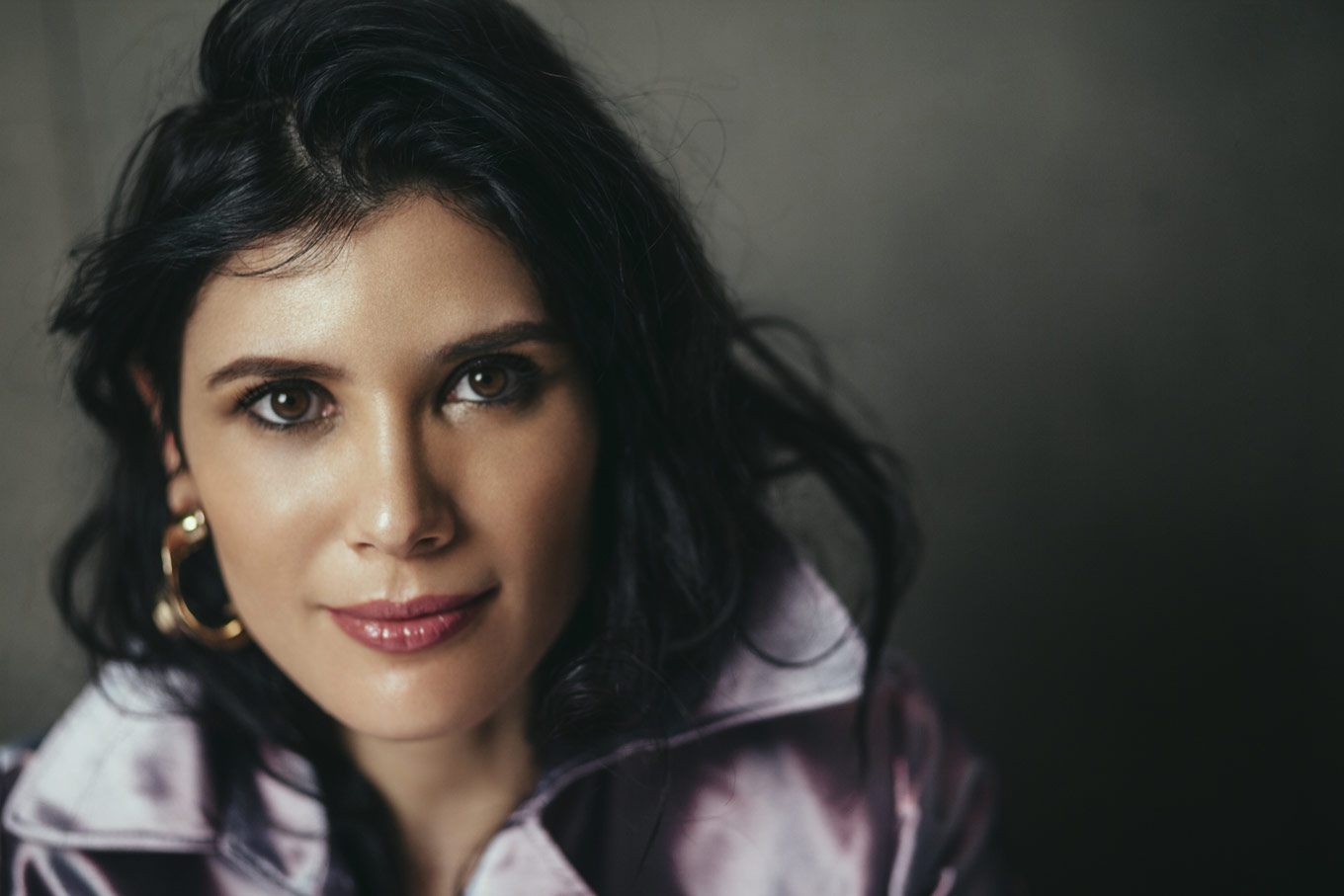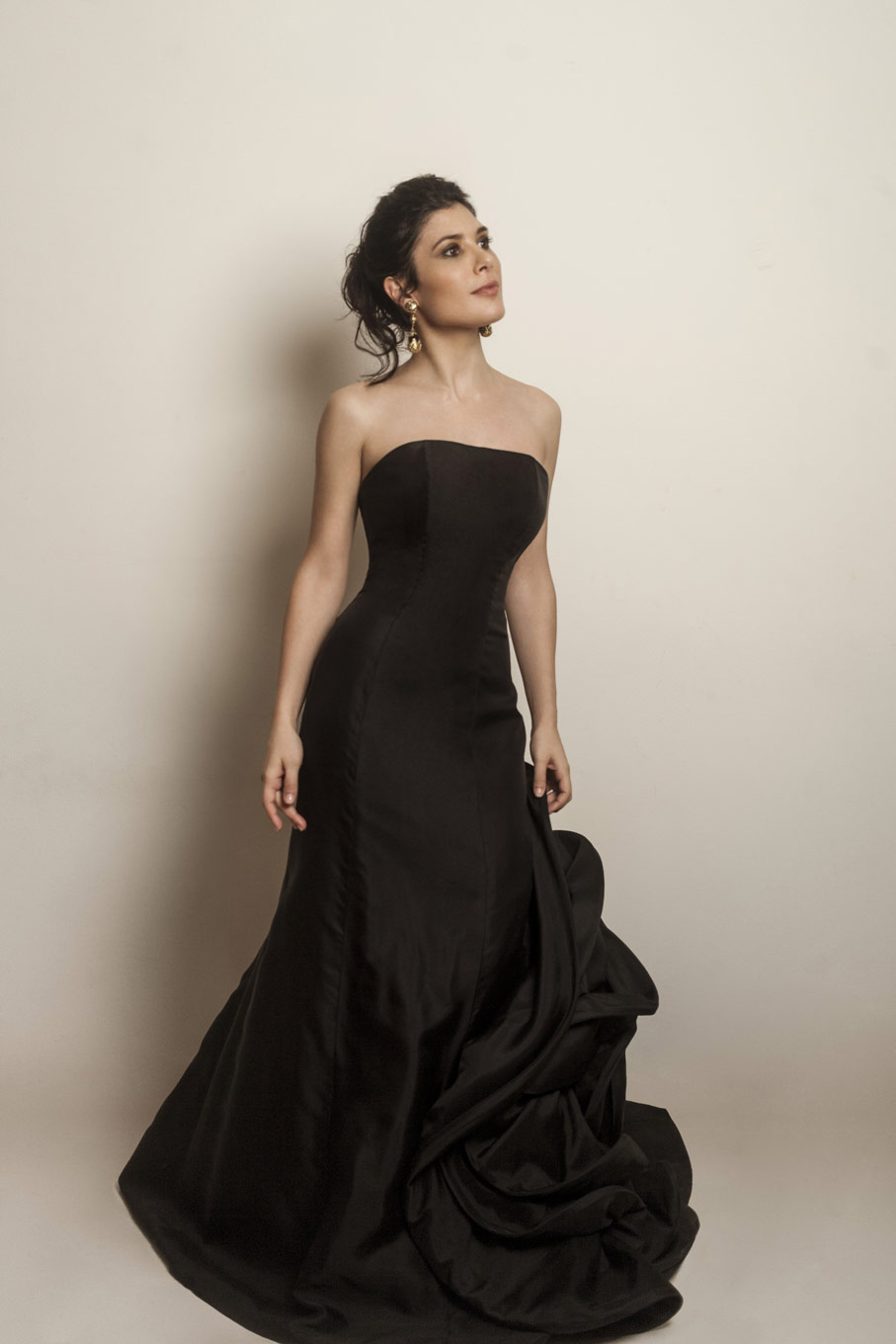
Talking with singers: Annalisa Stroppa
InterviewMezzo-soprano Annalisa Stroppa just finished singing the title role in Kasper Holten’s production of Carmen at the Bregenz Festival, and next month she heads to Astana, Kazakhstan, to sing Meg Page in Damiano Michieletto’s Falstaff at Astana Opera. For the 2017⁄18 season, Stroppa brings signature roles like Rosina (Il barbiere di Siviglia), Adalgisa (Norma), and Fenena (Nabucco) to houses from Dresden to Milan.
Stroppa’s passion for her work is infectious; we had a chance to speak with her about reaping the rewards of hard work and determination, and her invaluable support system of family and friends.
Why do you sing?
Singing has always been my passion since I was a young girl. I used to spend most of my afternoons after school at my maternal grandparents’, who, though not musicians or singers, listened to opera: Pavarotti, Domingo, Carreras and Mario Del Monaco. This is how I discovered opera, and I would imitate these tenors. I have always been extroverted and when I sang these arias I felt well, I was happy. Moreover, nature was generous with me and has given me a special voice, and that’s where the desire to sing came from.
And so I started studying solfège and piano, and later, after the voice break, I began my vocal training. My family believed in me, encouraged me and always supported me. I was very lucky and it’s also thanks to their trust in me that I was able to embark on this difficult journey with determination. My family taught me that it’s necessary to make sacrifices to obtain what one really desires and I grew up with their example. I studied at the Conservatory of Brescia, my hometown, and at the same time I would prepare my exams for the University and also taught in a primary school as I had obtained a license to do so. It wasn’t easy but I loved everything I did: teaching, studying at the University and above all singing!
After years of studies and sacrifices I can see my name in the rosters of the most important opera companies in the world: it is a huge satisfaction! I love my job: singing is not just work for me, it’s really part of myself, it fully absorbs my life and it’s wonderful to have been able to fulfil my dream! I could have never imagined it because one can understand something like this only when you personally experience it. Despite all the difficulties and spending a long time far from your loved ones, when you are on stage and you feel you have done your best, the audience’s applause compensates you for all the sacrifices you have done. I am truly lucky: I have been able to turn my passion into my job! I am so thankful, I am very happy and I hope I’ll be able to continue like this.

What do you know about the singing career that you wish you knew 10 years ago?
Nothing at all! The best part is to live and discover every single aspect of this career day by day on your skin, and face good and bad times with all your strength, just like it happens in everyday life. If we knew in advance all the hurdles of this career perhaps we would be discouraged from the start and this wouldn’t be helpful at all. Each of us has his or her path and destination to reach in a very personal route which must be faced with all our enthusiasm and energy, finding the most positive sides in each situation we experience and in every person we meet.
How do you stay healthy and happy while traveling for work?
The endless traveling, intense work and climate changes prompt us to take particular care of our health and voice. I always try everything I can not to get sick but sometimes one cannot escape the flu or a cold. It’s human and almost trivial but for those like us who work with their voices even a common cold becomes a problem. The important thing is to respect our bodies and follow the natural healing time without forcing, or else we may damage our instrument.
I am happy despite all the difficulties because I travel for a profession I adore and gives me a lot of satisfaction, and this is priceless. My passion and the enthusiasm together with family’s support is what gives me the strength and the serenity to deal with all the hurdles. Being away from your family and the consequent impossibility to cultivate one’s family, friends and sentimental relationship is the price to pay but I am convinced that those who love you support you and their presence is felt even when you are far away. I have been very lucky because since the beginning I have had near me wonderful people who never failed to make me feel their love and support.

How do you approach the trouser roles you sing? Do you have any tricks for embodying the opposite gender?
I’ve had the pleasure to sing several trousers roles. I have so much fun singing pants roles; I believe it is a a great luck for us to be able to change and impersonate such different roles. For a woman to interpret a male character is an acting pact: I observe with a lot of attention the behavior and movements of males, the children (like Hänsel), the teenagers (Cherubino and Romeo) and the more adult men (Ascanio and Orfeo). It is not easy but it’s possible! The important is to be able to become one with the character you are impersonating and everything becomes natural, and the movement blends with your voice and the requests of a stage director.
My first trouser roles was Cherubino in Mercadante I due Figaro, and later I sang the Mozart Cherubino, then Orfeo in Gluck’s Orfeo ed Euridice, Stéphano in Roméo et Juliette, Hänsel in Humperdick’s Hänsel und Gretel.
Last season I was Ascanio in Benvenuto Cellini and Romeo in I Capuleti e i Montecchi. Soon I will sing Siebel in Faust. So far it’s eight pants roles, though I’d like to interpret others such as Nicklausse in Les contes d’Hoffmann and Octavian in Der Rosenkavalier.
I am always trying to dig deeper in the character I am called to interpret so that I can make it my own and I believe this is the key to succeed. I become my character and live his or her emotions, and I believe this is the only way to convey to the audience all the feelings and emotions I experience on stage.
If you didn’t sing for a living, what do you think you would do instead?
In this moment it’s very difficult to imagine my life far from a stage and from performing!
I would have certainly chosen a job related to my university degree in social sciences: I could have become a school teacher or worked for disabled people, or I could have continued the job on which my university thesis focused, that is working with children living in prison with their incarcerated mothers from birth to the age of three.
The most important thing is in my opinion to pursue what you choose with your heart, with love and passion, and live it as if it were you mission and not just like a job. This is what makes a difference!
I am personally grateful to life for all that it has given me and for being so fortunate as to be able to cultivate everything I love!

Comments